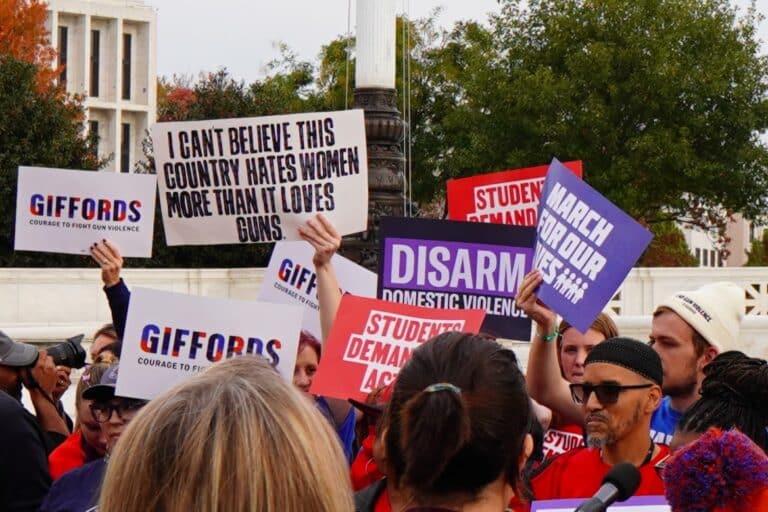Newly published research suggests young women have moved substantially to the left over the last two decades, driven in no small part by their increasing dissatisfaction with America’s gun laws. While those findings alone should trouble gun-rights advocates, the numbers point to trouble beyond a single demographic.
Last week, Gallup published a study of more than 20 years of polling data that backs up the popular wisdom that young women are indeed moving left at a rapid clip. From 2001-2007, Gallup found an average of 28 percent of women aged 18-29 identified as liberal, just three percentage points higher than young men. By 2017-2024, the most recent period surveyed, Gallup found an average of 40 percent of young women identified as liberal, a full 15 points higher than men of the same age.
Gun policy has driven a lot of that shift. Since the years of the Obama presidency, young women have become three percent more likely to say that handguns should be banned, 16 points more likely to say gun laws should be stricter, and 21 percent more likely to say that they are “very dissatisfied” with the nation’s gun laws. That’s the biggest single shift in dissatisfaction registered among any issue tracked across all sexes and age groups.
Overall, Gallup identified gun policy as among the top three issues that women between the ages of 18 and 29 have moved most leftward on over the last decade or so, the others being abortion and the environment. That suggests that gun-rights supporters have a particular issue on their hands with reaching young women. While there is truth to that conclusion, it risks overlooking a more sweeping trend at play.
Though young women led the pack in souring on America’s current gun laws, women over 30 were still 11 percent more likely to say that they are “very dissatisfied” with the nation’s gun laws now than they were during the Obama years. Men 30 and up are also now five percent more likely to say they are “very dissatisfied.”
Young men did not register a change in dissatisfaction. However, the number agreeing that gun laws should be stricter did increase by ten percentage points. A majority of young men supported stricter gun laws on average through the Trump and Biden years, whereas only four in ten felt the same way in both the Bush and Obama years.
In other words, though it appears to be more pronounced among younger women, there has been a broader increase in gun-control support since the Bush and Obama years. It’s not a single age group, gender, or demographic that gun advocates should be concerned about.
It’s not immediately clear how much this will impact the 2024 election as opposed to the long-term prospects of new gun restrictions.
It is still true that older voters turn out at higher rates than younger voters. However, it is also true that women turn out at a higher rate than men, and the gap in turnout is actually more pronounced among younger voters. If dissatisfaction with the status quo is any indication, Gallup’s poll suggests young women may also be more intent on voting based on gun policy. So, they may be more motivated to vote in races with major gun policy ramifications, whether on ballot measures or for particular candidates.
At the same time, some of this effect has already been baked in to our electrical politics.
The floor for public support for gun control among young women has always been much higher than for other groups, even before that bloc’s recent and much-discussed shift to the left. Despite trending in similar directions, Gallup found that young women are still 23 points more likely than young men to favor stricter gun laws.
According to Gallup, support for stricter gun laws among young women was at its nadir during the Obama years, yet it was still at 58 percent. Increasing supermajority support for stricter gun laws among one voting bloc may not be decisive.
A broad-based societal shift in the same direction stands to pose a much bigger problem for gun-rights supporters. While the shift among young women has garnered most of the attention, the numbers show that broader shift is underway.






